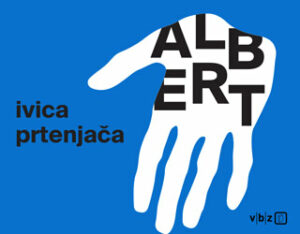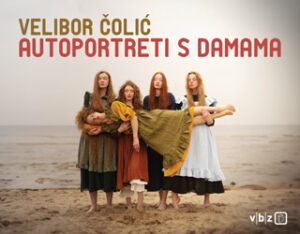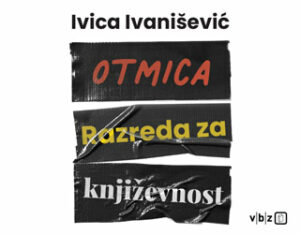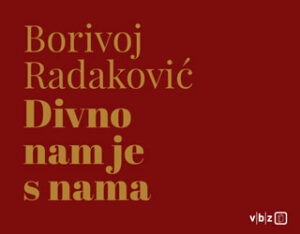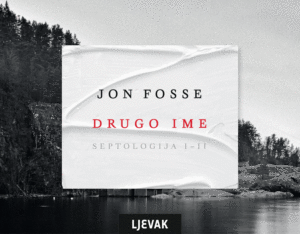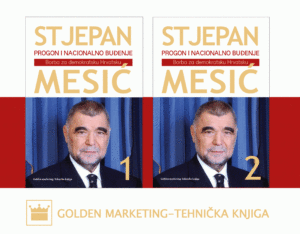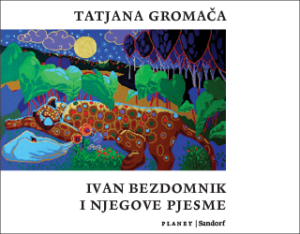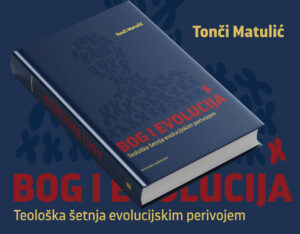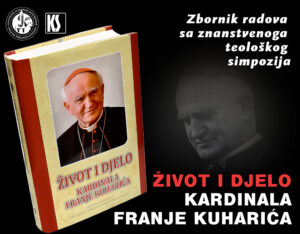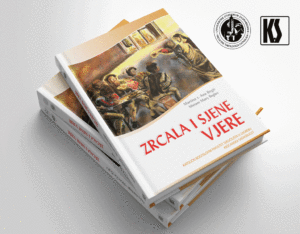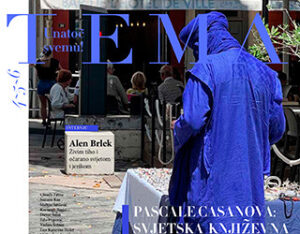autograf.hr
novinarstvo s potpisom

UKRAJINA ČIM PRIJE U EUROPSKU UNIJU!!

Theological Education: The Increasing Word of God

Gregory Thellman
(Opaska uredništva: Donosimo riječ akademskog dekana VETU, Gregorya Thellmana, s panela u povodu 50. godišnjice Visokog evanđeoskog teološkog učilišta, kazane u Osijeku, 3. prosinca. Ovaj tekst nećemo prevoditi).
The topic I have been given is “the importance of a Biblical foundation for evangelical theological education.” On the one hand, the assertion that scripture is important for Christian theological education may seem rather self-evident. And yet, this apparently straightforward profession generates a host of questions, including “what is scripture?” and “just what is or should be theological education?” Or, to make this statement itself into a question: “how important is the deep study of scripture to theological education?” After all, it might be argued, the world is rapidly changing, and Christian leaders need to be adept in a host of ways, as educators, counselors, public speakers, politically adept organizational leaders, business savvy marketers, community organizers, and intellectuals in step with the latest critical theories, etc. People might think “Bible knowledge” to be a rather antiquated idea, somewhat irrelevant, already long settled, or perhaps too ambiguous or difficult to be “useful”. What is needed most then, in this view, is application, contextualization, and contemporary world answers. What do students today want? What does society want? What do they need, to be able to answer the most pressing questions in the here and now?
But there are also those who would turn our given topic around in the other direction with this question. Rather than asking “how important is scripture for theological education?”, they would ask “just how important is theological education for understanding scripture?” For those thinking this question, theological education is quite unnecessary, even dangerous for a Christian believer. Studying the Bible too in-depth, listening to too many different voices and critically thinking about too many received doctrines can only put one’s faith in a precarious position, they might say. Or, in their minds, “theological education” does not really study the Bible but confuses the matter with all kinds of additional issues and other subjects. After all, the Bible is straightforward for anyone to read it and do what it says. These skeptics ask, “Do Christians really want or need theological education to understand the Bible we already know so well, or perhaps, do we really need to be taught what we can teach ourselves?”
These two questions, “how important is scripture for practicing theological education?” and “how important is theological education for understanding scripture?” are perhaps much more actual and relevant in church and society today than we might think, and both, in one way or another, either question the foundational role of scripture for theological education, or question this connection’s efficacy, relevance or benefit. But both questions also reflect very legitimate concerns. On the one hand, theological education does need to be able engage contextually with the contemporary world, and on the other hand, theological education does need to remain closely engaged with the Church so that deep-rooted Biblical knowledge is accessible and spiritually effectual. A balanced and Biblical view shows that yes, theological education was and is, and must continue to be a necessary enterprise which must remain rooted in scripture, relevant in mission to the contemporary world, responsive to the church of God, and responsible to the Lord himself.
It is true that the word theology is not to be found in scripture, even though it was a term used by the ancient Greeks. But the constituent parts of this word are both extremely important Biblical terms: logos and theos. The logos of the theos (logos theou), or, the “word of God” is a familiar Biblical expression, pointing to divine revelation that is given as a message to Israel or mankind both in oral and ultimately written form, or even as the way to describe Jesus, the “word become flesh.” But the logos from God is always delivered or received through human agency. We should therefore think of this logos, “word” as discourse both revealed from God and the subsequent thought and discourse about God in his dealings with his creation and principally with human beings.
Consider how Luke uses this expression in his Gospel and in the book of Acts. First, in Luke 5:1 “word of God” is used to designate the preaching of Jesus, that is, it is revelation from God through Jesus to those who hear. But Jesus later proclaims in Luke 8:21 that those who hear the Word of God and do it, are consequently his “mother and brothers”, and in 11:28 that those who hear the Word of God and keep it are blessed. Later we read in Acts 8 and 11 that even the Samaritans and Gentiles received the word of God, that is, they heard it, and received it as true. But the word of God, i.e., the revelation from God, is not only to be received, kept, and done, it is to be spoken by Jesus’ followers. We read in Acts 4:31 and 6:2 that the community of disciples, filled with the Holy Spirit, continued to speak the “word of God” in boldness, and that the twelve in Acts 6:2 declared the rightness of their prioritizing the teaching of the word of God over all other tasks, even important ones!
But there is one more interesting statement given by Luke about the word of God. In Acts 6:7 Luke writes that the “word of God continued to increase, and the disciples multiplied greatly in Jerusalem, and a great many of the priests became obedient to the faith.” Later in 12:24 Luke reiterates this notion that the “word of God increased and multiplied.” Now we need to stop here for a moment. I think we usually think of this statement as making the general statement that the gospel was “spreading,” but that’s not what the text says. Luke distinctly uses 2 Greek verbs in these two passages: auxanō and plēnthunō. The former means “to increase, grow or be enlarged,” while the latter means “to multiply or cause to increase.” These connotations are not quite the same as “spreading.” What I want to suggest is that the logos theou, the “word of God” is not a static object, to be distributed around like a flyer or brochure with information, but rather revelation from God that actually grows, increases, and bears fruit as the followers of Jesus hear it, receive it, think about it, keep it, do it, teach it and preach it. Let us go back to Luke’s Gospel, to the parable of the sower in chapter 8 (vss. 4–15). In Jesus’ explanation of the parable, he clarifies that the seed is the “word of God.” Jesus concludes that where the seed is planted in good soil, that represents “those who, hearing the Word, hold it fast, in an honest and good heart, and bear fruit with patience” (8:15). That is theology.
Theology thus can be rightly described as the receiving, thinking, discourse and praxis concerning the revealed word of God. We might say it is the growing or increase of the word revealed from God through his people as they hear, receive, consider, hold on to, speak, teach, and preach it. But this revealed word is not just a philosophy, message, or teaching, but is bound up with the person of Jesus himself, whom John says is, the logos embodied. And the embodied logos has students, whom we call disciples. Remember Acts 6:7, the passage alluded to above. Parallel to the increase of the word of God is the increase of disciples, that is, the increase of students. What we are describing here is theological education. When Jesus calls a follower in the Gospels, he calls a person to be a learner, a student, and this call does not end after Jesus’ resurrection and ascension. As we see in Acts 6:7, it continues through God’s people as they call new students to hear, receive, consider, hold fast, speak about, teach and preach the word of God, which is the revelation from God bound up with a person, the Messiah Jesus.
Of course, one way Jesus’ revelation, the “word of God” increases is through its writtenness: the emergence of the New Testament canon as a continuation of the Law and the Prophets and a witness to their fulfillment in the person of Jesus. And so today, Jesus’ disciples, his students, continue to teach and learn all that he commanded, now the word of God in written form, but still increasing as this written word is heard, received, reflected on, held fast, spoken about, taught, and preached. Indeed, all of this is truly theological education: “Go into all the nations . . . and make students . . . teaching them all I have taught you” (Matt 28:19-20).
How important is the scripture for theological education? It is the very essence of it. To truly practice theological education is to practice the increasing of the word of God. How important is theological education for understanding scripture? Hearing, receiving, understanding, keeping, doing, and teaching scripture is theological education. And when truly done and practiced, it bears fruit for both the church and for society. When the disciples, or students, of Jesus are living out the word, rooted in it, then, and only then, are they most relevant to the world, most responsive to the church, and most responsible (that is, faithful) to their Lord and King who, through this Spirit bears fruit through them.
In these 50 years, multitudes of graduates of this institution (VETU) have gone out into the world and through them the Lord has made his word to increase and multiply. May it continue to be so until the Lord comes in glory and power, in the name of Father, and the Son, and the Holy Spirit.
VETU, Osijek, Dec 3
UKOLIKO VAM SE TEKST DOPADA I VOLITE NEZAVISNO I KVALITETNO NOVINARSTVO, VI MOŽETE PODRŽATI AUTOGRAF PA I NAJMANJOM MOGUĆOM UPLATOM NA NAŠ RAČUN ILI PREKO PAYPAL-A. HVALA! ZA VIŠE INFORMACIJA I PRECIZNE UPUTE KLIKNITE OVDJE.
> Svi tekstovi ovog autora
Oznake: Bible, Gregory Thellman, Jesus, logos, Osijek, Theological education, VETU, Word of God
DNEVNI TWEEt DRAGE PILSELA
ARHIVA – VRIJEME SUODGOVORNOSTI
vrijeme i suodgovornosti
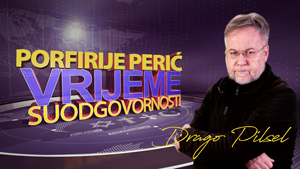
Donacije
Cigle

ekumena

javni servis

prometej

argentinski roman

povratak adolfa pilsela
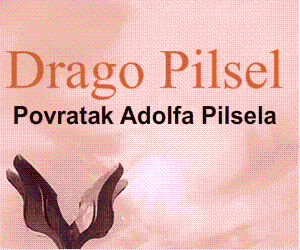
u što vijerujemo

fraktura 1









